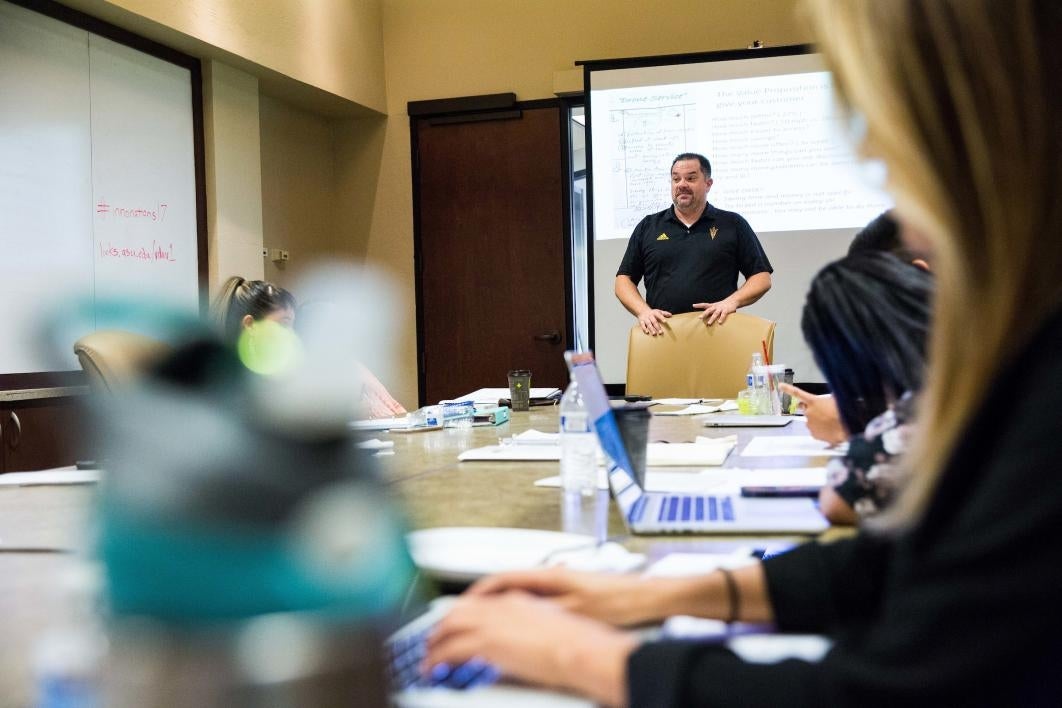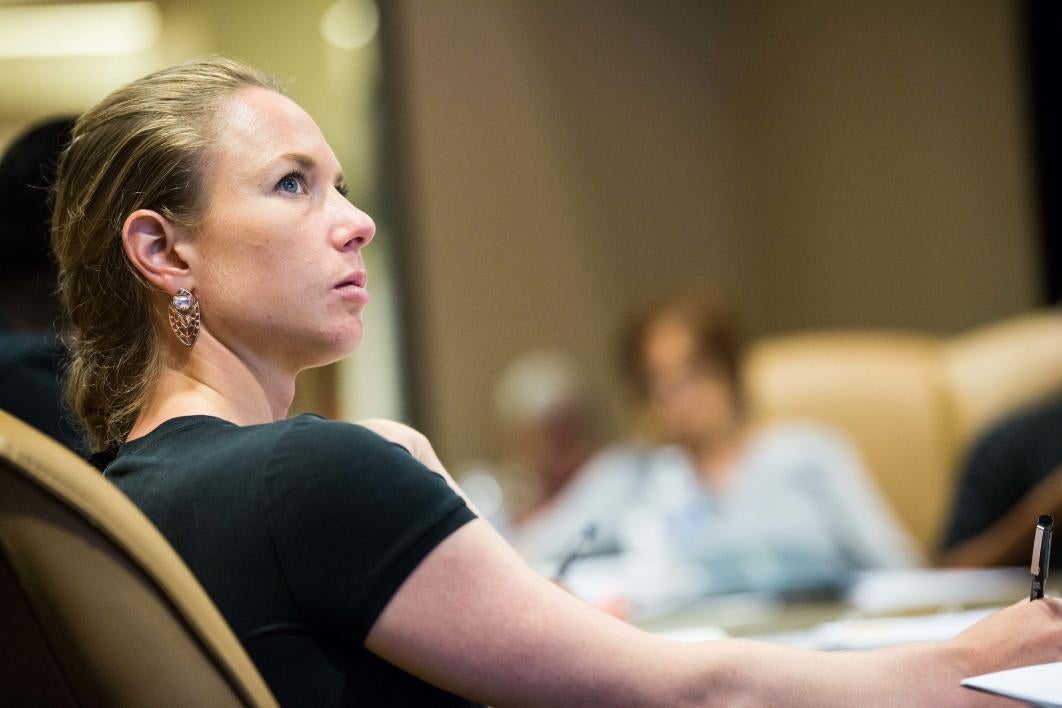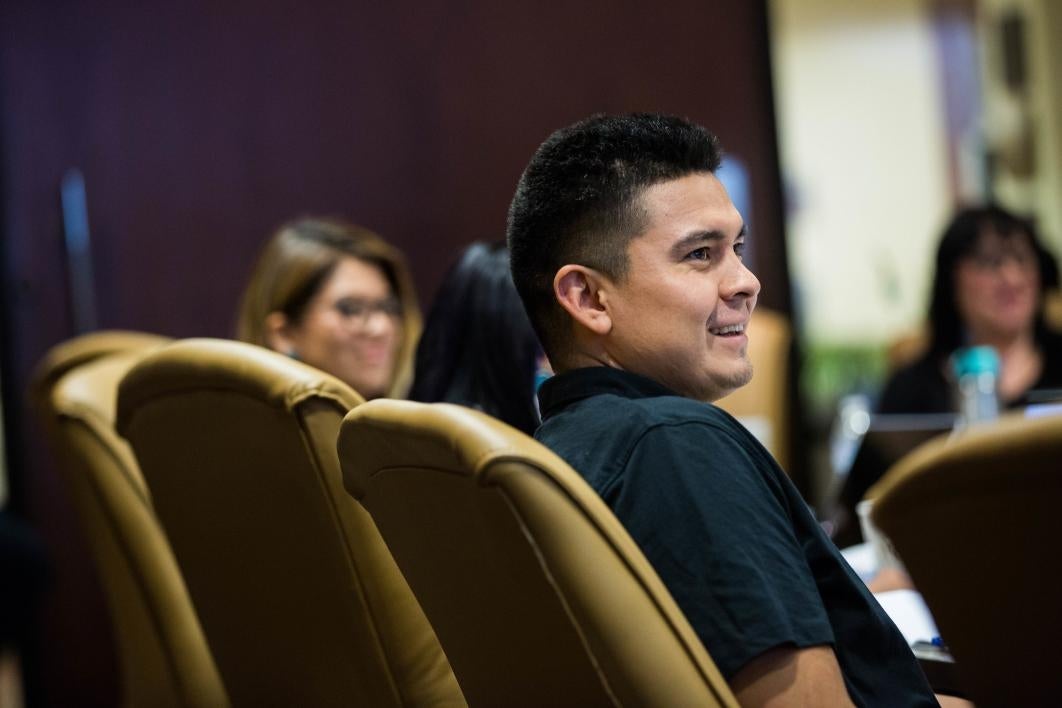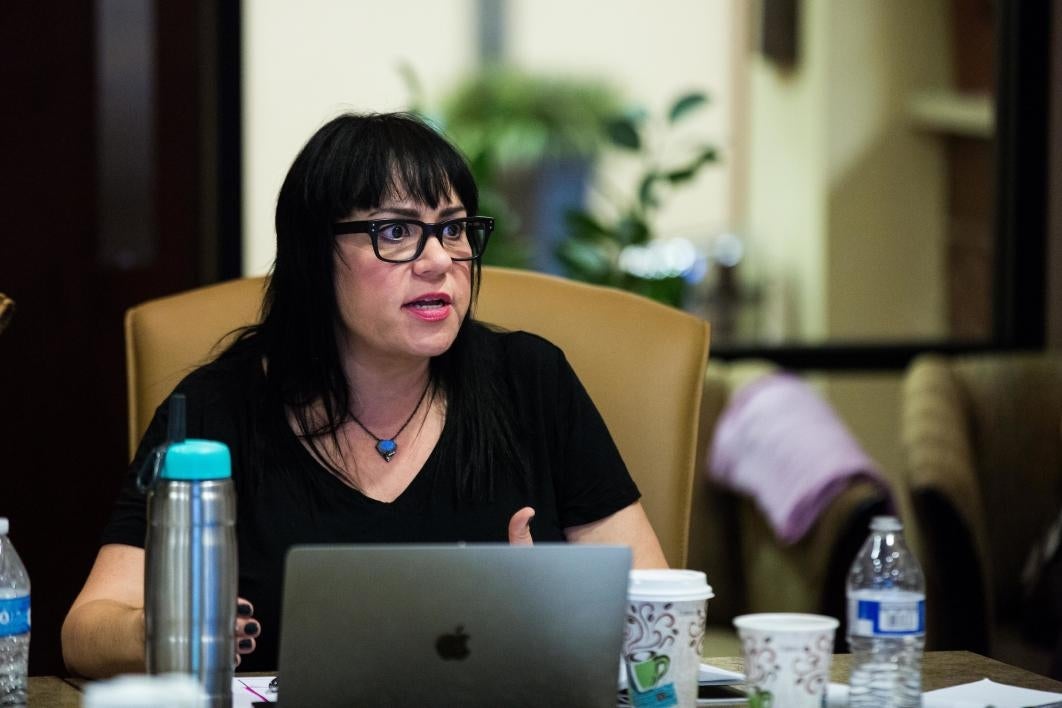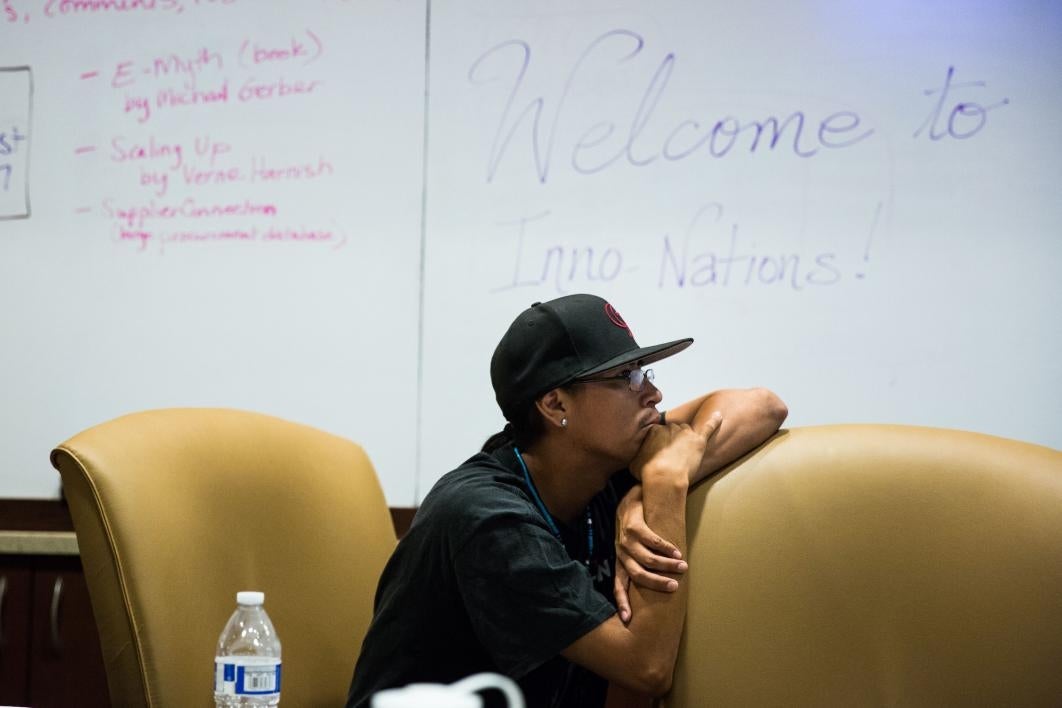The presenter went around the conference room on Friday morning, asking participants if they thought of themselves as entrepreneurs.
Crickets.
Not one of them — eight Native American business owners — raised their hand or said yes.
“We’re taught to be humble in that sense, not to boast,” said Kelsey Haake, a Phoenix-based certified financial manager and estate planner. “We haven’t been ingrained to think ourselves of that way.”
Haake (pictured above, center), originally from the Inupiaq Tribe in northwestern Alaska, said humility is heavily emphasized in Indian Country and that Native Americans are taught not think of themselves as better than others or go out of their way to stand out from the crowd.
Host Traci Morris smiled knowingly, anticipating the reason. But she wanted everyone to give themselves a pat on the back for a job well done.
“I never called myself an entrepreneur either, but I would argue that you’re all innovators, business people and entrepreneurs,” said Morris, ASU’s American Indian Policy Institute director and Inno-NATIONS founder. “If we weren’t great innovators and adaptors, we wouldn’t have survived Colonialism. I think Native Americans are the greatest entrepreneurs of all.”
Looking to create opportunity, the American Indian Policy Institute in collaboration with ASU’s Entrepreneurship + Innovation has developed an intertribal initiative called Inno-NATIONS, which champions indigenous entrepreneurship and economic development across America.
The goal is to support up-and-coming Native American businesses and ignite their enterprises to fuel sustainable tribal economies by rejuvenating and modernizing traditional trade networks.
Morris said by spearheading innovative partnerships and leveraging resources from ASU, tribes and community organizations, she hopes that Inno-NATIONS will create a “collision community,” causing a ripple effect of economic change in tribal communities.
This year marks the inaugural cohort with Native entrepreneurs, which met from June 22-24. After an opening reception in downtown Phoenix, they got down to business. Through a learning lab, strategy discussions, multimedia presentations and mentorship, the eight participants worked on and learned about business pitches, storytelling, indigenous innovation principles, strategic planning sessions, startup models and business goals. They also read financial statements, took quizzes, watched videos and read several articles by ASU professors.
Morris said after this weekend, they’ll also receive six months of follow-up business counseling, webinars, membership in the Arizona American Indian Chamber of Commerce and a feature article in The Visionary magazine.
The information learned in these sessions was valuable, said Chickasaw Nation citizen Kristen Dorsey. She traveled from Los Angeles to participate.
“These activities were really helpful to me in defining markets and speaking to them effectively,” said Dorsey, who has a Southeastern-inspired line of jewelry. “It was definitely worth the trip.”
For Hopi Tribe member Delvan Polelonema, who owns Naqwatsveni Skateboarding, it was more about receiving confirmation that he was on the right track.
“It’s helpful to know someone else who's been there believes in what you’re doing,” said Polelonema. “I now have more confidence in myself and my product.”
So does Haake, who by the end of the session started to get used to the idea of calling herself an "entrepreneur.”
“I’m more open to the label of calling myself an entrepreneur after this formal business training,” Haake said. “I can say it now without feeling strange about it.”
The entire Inno-NATIONS Inaugural Community Cohort includes: Marian Declay, Native Organization Entertainment; Kristen Dorsey, Kristen Dorsey Designs; Adrian Dotson, ETD Inc; Kelsey Haake, Inuit Financial Services; Rykelle Kemp, Wooden Nickel Store; Candice Mendez, Salt V.Mo Consulting; Delvan Polelonema, Naqwatsveni Skateboarding and Asia Soleil Yazzie, Lady Yazzie.
Top photo: (From left) Delvan Polelonema, owner of Naqwatsveni Skateboarding; Kelsey Haake, a Phoenix-based certified financial manager and estate planner; and Rykelle Kemp, owner of the Wooden Nickel, listen during the Inno-NATIONS workshop Friday in Phoenix. by Deanna Dent/ASU Now
More Business and entrepreneurship

Exhibit that tells the history of procurement on display at ASU
A traveling museum that chronicles the history of procurement — the process of buying and selling goods and services — is now on display at the W. P. Carey School of Business at Arizona State…

Former NBA All-Star inspires ASU students in fireside chat
A Naismith Memorial Basketball Hall of Famer and celebrated former Phoenix Sun said Monday that professional sports bring many benefits.They foster camaraderie and lifelong friendships, fuel a…

Measuring the supply chain impact of the LA fires
The Greater Los Angeles wildfires are continuing to wreak havoc in the area, burning structures, displacing residents, and pushing city and state resources to their limits.When the fires are finally…



